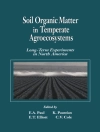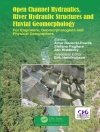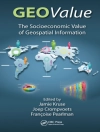This book uncovers the multiple layers of challenges posed to achieve sustainable human health and improves the understanding of interactive areas set by the UN Sustainable Development Goals (1) no poverty, (2) zero hunger, (3) good health and wellbeing, (6) clean water and sanitation, and (11) sustainable cities and communities. The book focuses on conceptual understanding, food, nutrition, lifestyle, and their integration to reinforce the ideas of holistic health principles.’
The most important drivers of sustainable health are food, nutrition, and lifestyle. Healthy food is a basic need of human beings. In under-developed regions, people are underweight and facing malnutrition, with a prevalence of deficiency diseases due to low intake of micro-nutrients such as vitamin A, iodine, and protein among others. A good diet as well as lifestyle has a tremendous bearing on a person’s health, emotional stability, and enthusiasm for life.
The global coronavirus pandemic has brought unimaginable devastation and hardship in all corners of the globe, questioning the existing healthcare services, health policies, and health planning across the developed and developing countries. It has also exposed the lacunae in understanding health, the base of human happiness. The global community needs to gravely ponder the health issues we are facing and explore sustainable solutions for health recovery and the wellbeing of humanity.Tabla de materias
Appraising Visioning Sustainability for a Healthy and Happy Future.- Sustainable Health in Territorial Planning.- Food Consumption Patterns and Associated Health Risks in Douala Metropolis – Cameroon.- Geostatistical Study on Waterborne Disease Outbreak in India [2011-2020].- Peri-urban Agriculture and Food Supply.- Gender Dimension of Child Malnutrition among Tribal Children in India.- Food Processing and Nutrition Delivery.- Undernutrition Among the Adult Tribal Populations of India: Review and Meta-analysis.- The Food and Nutrition Status in India: A Systematic Review.- Spirituality in Sustainable Mental Health Protection: Evidence from Vocational Training of Information Technology Professionals.- Physical Activity as a Vital Element of the Development of the Concept of Healthy Cities (SDG 3 and 11) with a Role of Local Governments (SDG 17).- Body Mass Index and Healthy Lifestyle among Adolescent Girls: A Case Study on Delhi.- Can Doctor’s Resource Allocation Improve Residents’ Health?: Price, Quality, Patient Mobility.- The Role of Urban Gardening in Global Cities: Three Case Studies in Berlin, Rome and Tokyo.- Distributional Analysis and Access to Fresh Fruits and Vegetable Shops in Residential Neighborhoods of Birnin-Kebbi Metropolis, Nigeria: Implications for Informal Landuse Planning.- Nutrition, Lifestyle and Health Status among Tribal Communities: A Case Study of Particularly Vulnerable Tribal Group of Kerala.- Living with Reduced HIV/AIDS Stigma & Discrimination: A Grounded Theory Analysis of Infected Migrants.- Towards Sustainable Understanding of Health: Perception and Worldview on Erectile Dysfunction Nigeria.- An Integrated Enviro-Psychological Approach to Health.
Sobre el autor
Aakriti Grover is currently an assistant professor at the Central University of Tamil Nadu. She has taught at various colleges of the University of Delhi, having a total working experience of over 11 years. She specializes in the geography of health and wellbeing, urban environment, and geography of tourism. She has published 10 research papers in international peer-reviewed journals, 5 chapters in edited books, and a book titled Urban Health and Wellbeing: Indian Case Studies (Springer). She is the recipient of a World Social Science Fellowship, and a member of the Urban Commission: Re-Thinking cities and the urban: from the global to the local at the International Geographical Union.
Anju Singh is now serving as an associate professor in the Department of Geography, Aditi Mahavidyalaya, University of Delhi. Dr. Anju specializes in the field of climatology, land use and land cover study, urban geography, water resource management, and coastal ecosystems. She has received international travel grants to present research findings at international forums in Japan. Dr. Anju has published 1 book and more than 10 chapters in edited books and in journals of national and international repute. She is currently actively associated with the National Association of Geographers, India (NAGI), and the Association of Geographical Studies (AGS). She is a member of the prestigious BRICS countries project on satellite validation sponsored by the Department of Science and Technology, Government of India. She is also one of the book editors of the Springer volume Water Resources Management and Sustainability. She has been invited to prepare reading materials by the National Institute of Open Schooling (NIOS) and the Indira Gandhi National Open University (IGNOU).
R.B. Singh was the secretary general and treasurer of the International Geographical Union and a former head of the Department of Geography, Delhi School of Economics, University of Delhi, India (2013–2016 and 2019–2020). He has supervised 40 Ph.D. and 81 M.Phil. research scholars and numerous M.A. students. He has been the chair of the University Grants Commission (UGC) National Committee’s Learning Outcome Based Curriculum Framework since July 2018. He was invited by the Inter Academy Partnership (IAP)–Global Network of Science Academies to join a working group for statements on science and technology for disaster risk reduction. Prof. Singh was unanimously elected president of the Earth System Science Section of the Indian Science Congress Association for 2019–2020. The National Institution for Transforming India (NITI) Aayog, Government of India, invited him to be a member of the committee for preparing Vision India 2035. He has authored 16 books and edited 40 books, with more than 250 research papers published in national and international journals. He is the series editor of Advances in Geographical and Environmental Sciences (Springer) and Sustainable Development Goals (Springer). He was awarded the prestigious Japan Society for Promotion of Science (JSPS) Research Fellowship at Hiroshima in 2013 and several travel fellowships and support from various organisations.












